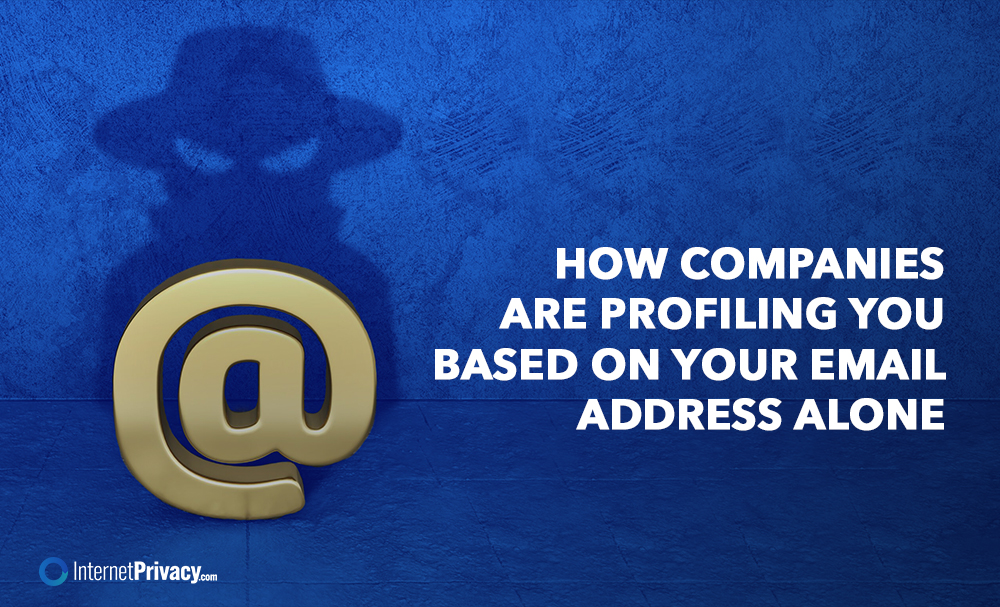How Companies Are Profiling You Based on Your Email Address Alone

Your email address is more than just a way to send messages—it serves as a data point that companies, law enforcement agencies, and cybercriminals use to analyze your online presence. Whether it’s consumer profiling for marketing or criminal investigative analysis in law enforcement, your email can unlock details about your identity, habits, and digital footprint.
What Can Be Determined From Your Email Address?
Your email address is a digital identifier, allowing companies and investigators to extract critical information. Here’s what they can determine:
Personal Information & Identity
Many organizations use email-based profiling to uncover:
- Your name, age, and gender
- Social media profiles linked to your email
- Your online behavior and interests
Companies and law enforcement agencies create detailed consumer and offender profiles by combining investigative psychology and data analysis. For instance, marketing firms predict shopping behavior, while law enforcement officers track online fraud rings.
Online Activity & Behavior Tracking
Your email is often tied to consumer profiling and crime assessment strategies. Companies analyze:
- Browsing history connected to your email
- Purchases and transactions
- Social media engagement
Much like criminal profiling helps investigators link one offender to multiple crimes, businesses use profiling approaches to understand user behavior. This allows them to target individuals with customized ads.
Location & Device Tracking
Companies and investigators can track:
- Your IP address and device details
- Your frequent locations based on logins
- Your travel patterns
For example, marketing firms use this data to personalize advertising, while law enforcement agencies rely on it to track cybercriminals. However, cybercriminals can exploit your information, increasing the risk of identity theft if your information isn’t secured.
Data Sales & Profiling Approaches
Many companies collect, analyze, and sell data linked to your email address. While legal in many cases, this practice raises concerns about:
- Privacy violations
- Data leaks and breaches
- Unethical consumer tracking
Just as investigators examine physical evidence at a crime scene, marketers analyze digital footprints to target consumers. However, the lack of transparency in these practices has led to debates on ethical data collection.
How This Data Is Used
Targeted Advertising
Companies rely on consumer profiling to:
- Predict shopping habits
- Deliver personalized ads
- Adjust pricing strategies
Similarly, crime scene actions provide investigators with patterns that help them determine offender characteristics. In marketing, these profiling methods allow companies to refine their advertising tactics.
Law Enforcement & Criminal Profiling
Investigators use email data to:
- Link similar crimes
- Identify suspects
- Track cybercriminals
For example, the FBI method of behavioral profiling helps officers analyze case linkage in digital crimes. By tracking online footprints, investigators establish connections between one offender and multiple offenses.
Cybersecurity & Fraud Detection
Financial institutions and cybersecurity teams examine email behavior to:
- Prevent phishing attacks
- Detect fraudulent transactions
- Assess identity theft risks
Similar to how criminal investigative analysis identifies the motives behind a crime, fraud detection teams use data analytics to spot suspicious activity before it escalates.
How to Protect Your Privacy
To avoid being profiled, follow these five steps:
- Use a Burner Email
- Sign up for online services with a secondary email to reduce exposure.
- This method prevents case linkage between personal and professional accounts.
- Enable Multi-Factor Authentication (MFA)
- Adding a second layer of security makes it harder for hackers to access your accounts.
- Adjust Privacy Settings
- Review data collection policies on the platforms you use.
- Opt out of unnecessary tracking and profiling practices.
- Be Mindful of What You Share Online
- Investigators and cybercriminals can easily examine public information to identify victims.
- Oversharing increases your risk of fraud and identity theft.
- Monitor Your Digital Footprint
- Check if your email has been leaked or sold on the dark web.
- Use services that help remove personal data from search results.
The Ethics of Email Address Profiling
Although criminal profiling helps law enforcement solve cases, consumer profiling raises ethical concerns when misused. Some of the biggest issues include:
- Lack of transparency in tracking online behavior
- Racial profiling and discrimination in digital marketing
- Unfair financial decisions based on profiling data
Much like criminal investigative tools, profiling techniques require strict ethical oversight. Without proper guidelines, profiling can lead to biased targeting, invasion of privacy, or even identity theft.
Conclusion: Protecting Your Digital Identity
Your email address is more than just a communication tool—it’s a key identifier used in investigations, profiling, and targeted marketing. Understanding these risks is essential whether you’re concerned about privacy, cybersecurity, or consumer profiling.
By recognizing how your email is tracked and analyzed, you can take control of your digital footprint and reduce the risk of being profiled.





